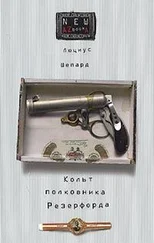Gradually his arms and legs lost their heaviness, and his heart rate slowed. His vision sharpened to the point that he could see not only the pinpricks of fire blooming on the slope, but also the figures behind them, half-obscured by brush. A bubble of grim anger welled up in his brain, hardened to a fierce resolve, and he started moving toward the volcano. By the time he reached the base of the cone, he was all rage and reflexes. He spent the next forty minutes spinning acrobatically through the thickets, spraying shadows with bursts of his M-18; yet part of his mind remained distant from the action, marveling at his efficiency, at the comic-strip enthusiasm he felt for the task of killing. He shouted at the men he shot, and he shot them many more times than was necessary, like a child playing soldier.
“Playin’ my ass!” DT would say. “You just actin’ natural.”
DT was a firm believer in the ampules; though the official line was that they contained tailored RNA compounds and pseudoendorphins modified to an inhalant form, he held the opinion that they opened a man up to his inner nature. He was big, black, with heavily muscled arms and crudely stamped features, and he had come to the Special Forces direct from prison, where he had done a stretch for attempted murder; the palms of his hands were covered by jail tattoos—a pentagram and a horned monster. The words DIE HIGH were painted on his helmet. This was his second tour in Salvador, and Moody—who was Dantzler’s buddy—said the drugs had addled DT’s brains, that he was crazy and gone to hell.
“He collects trophies,” Moody had said. “And not just ears like they done in ‘Nam.”
When Dantzler had finally gotten a glimpse of the trophies, he had been appalled. They were kept in a tin box in DT’s pack and were nearly unrecognizable; they looked like withered brown orchids. But despite his revulsion, despite the fact that he was afraid of DT, he admired the man’s capacity for survival and had taken to heart his advice to rely on the drugs.
On the way back down the slope they discovered a live casualty, an Indian kid about Dantzler’s age, nineteen or twenty. Black hair, adobe skin, and heavy-lidded brown eyes. Dantzler, whose father was an anthropologist and had done fieldwork in Salvador, figured him for a Santa Ana tribesman; before leaving the States, Dantzler had pored over his father’s notes, hoping this would give him an edge, and had learned to identify the various regional types. The kid had a minor leg wound and was wearing fatigue pants and a faded COKE ADDS LIFE T-shirt. This T-shirt irritated DT no end.
“What the hell you know ’bout Coke?” he asked the kid as they headed for the chopper that was to carry them deeper into Morazán Province. “You think it’s funny or somethin?” He whacked the kid in the back with his rifle butt, and when they reached the chopper, he slung him inside and had him sit by the door. He sat beside him, tapped out a joint from a pack of Kools, and asked, “Where’s Infante?”
“Dead,” said the medic.
“Shit!” DT licked the joint so it would burn evenly. “Goddamn beaner ain’t no use ’cept somebody else know Spanish.”
“I know a little,” Dantzler volunteered.
Staring at Dantzler, DT’s eyes went empty and unfocused. “Naw,” he said. “You don’t know no Spanish.”
Dantzler ducked his head to avoid DT’s stare and said nothing; he thought he understood what DT meant, but he ducked away from the understanding as well. The chopper bore them aloft, and DT lit the joint. He let the smoke out his nostrils and passed the joint to the kid, who accepted gratefully.
“Qué sabor!” he said, exhaling a billow; he smiled and nodded, wanting to be friends.
Dantzler turned his gaze to the open door. They were flying low between the hills, and looking as the deep bays of shadow in their folds acted to drain away the residue of the drugs, leaving him weary and frazzled. Sunlight poured in, dazzling the oil-smeared floor.
“Hey, Dantzler!” DT had to shout over the noise of the rotors. “Ask him whass his name!”
The kid’s eyelids were drooping from the joint, but on hearing Spanish he perked up; he shook his head, though, refusing its answer. Dantzler smiled and told him not to be afraid.
“Ricardo Quu,” said the kid.
“Kool!” said DT with false heartiness. “Thass my brand!”
He offered his pack to the kid.
“Gracias, no.” The kid waved the joint and grinned.
“Dude’s named for a goddamn cigarette,” said DT disparagingly, as if this were the height of insanity.
Dantzler asked the kid if there were more soldiers nearby, and once again received no reply; but, apparently sensing in Dantzler a kindred soul, the kid leaned forward and spoke rapidly, saying that his village was Santander Jimenez, that his father was—he hesitated—a man of power. He asked where they were taking him. Dantzler returned a stony glare. He found it easy to reject the kid, and he realized later this was because he had already given up on him.
Latching his hands behind his head, DT began to sing—a wordless melody. His voice was discordant, barely audible above the rotors; but the tune had a familiar ring and Dantzler soon placed it. The theme from Star Trek. It brought back memories of watching TV with his sister, laughing at the low-budget aliens and Scotty’s Actors’ Equity accent. He gazed out the door again. The sun was behind the hills, and the hillsides were unfeatured blurs of dark green smoke. Oh, God, he wanted to be home, to be anywhere but Salvador! A couple of the guys joined in the singing at DT’s urging, and as the volume swelled, Dantzler’s emotion peaked. He was on the verge of tears, remembering tastes and sights, the way his girl Jeanine had smelled, so clean and fresh, not reeking of sweat and perfume like the whores around Ilopango—finding all this substance in the banal touchstone of his culture and the illusions of the hillsides rushing past. Then Moody tensed beside him, and he glanced up to learn the reason why.
In the gloom of the chopper’s belly, DT was as unfeatured as the hills—a black presence ruling them, more the leader of a coven than a platoon. The other two guys were singing their lungs out, and even the kid was getting into the spirit of things. “Música!” he said at one point, smiling at everybody, trying to fan the flame of good feeling. He swayed to the rhythm and essayed a “la-la” now and again. But no one else was responding.
The singing stopped, and Dantzler saw that the whole platoon was staring at the kid, their expressions slack and dispirited.
“Space!” shouted DT, giving the kid a little shove. “The final frontier!”
The smile had not yet left the kid’s face when he toppled out the door. DT peered after him; a few seconds later he smacked his hand against the floor and sat back, grinning. Dantzler felt like screaming, the stupid horror of the joke was so at odds with the languor of his homesickness. He looked to the others for reaction. They were sitting with their heads down, fiddling with trigger guards and pack straps, studying their bootlaces, and seeing this, he quickly imitated them.
* * *
Morazán Province was spook country. Santa Ana spooks. Flights of birds had been reported to attack patrols; animals appeared at the perimeters of campsites and vanished when you shot at them; dreams afflicted everyone who ventured there. Dantzler could not testify to the birds and animals, but he did have a recurring dream. In it the kid DT had killed was pinwheeling down through a golden fog, his T-shirt visible against the roiling backdrop, and sometimes a voice would boom out of the fog, saying, “You are killing my son.” No, no, Dantzler would reply, it wasn’t me, and besides, he’s already dead. Then he would wake covered with sweat, groping for his rifle, his heart racing.
Читать дальше






